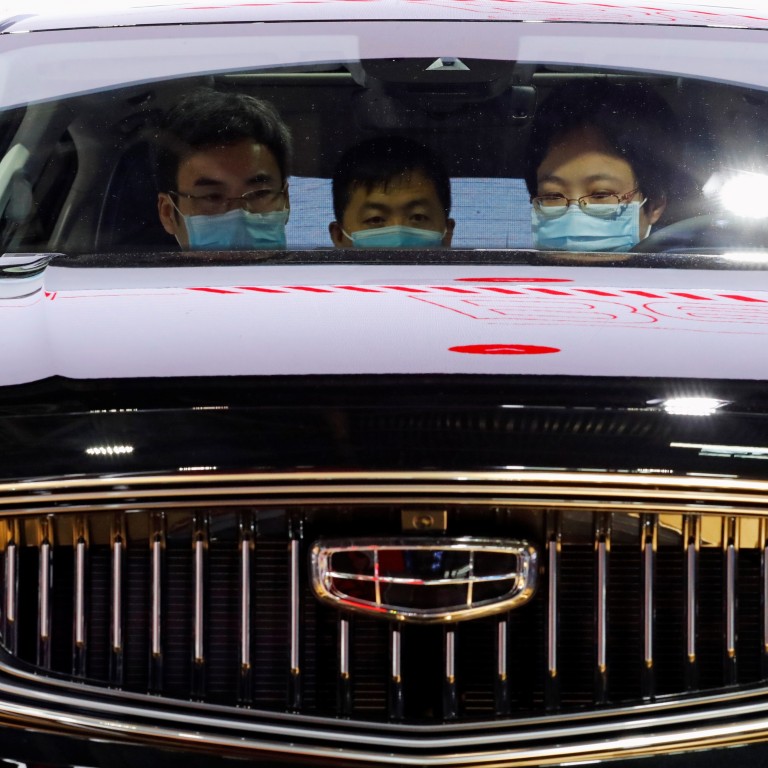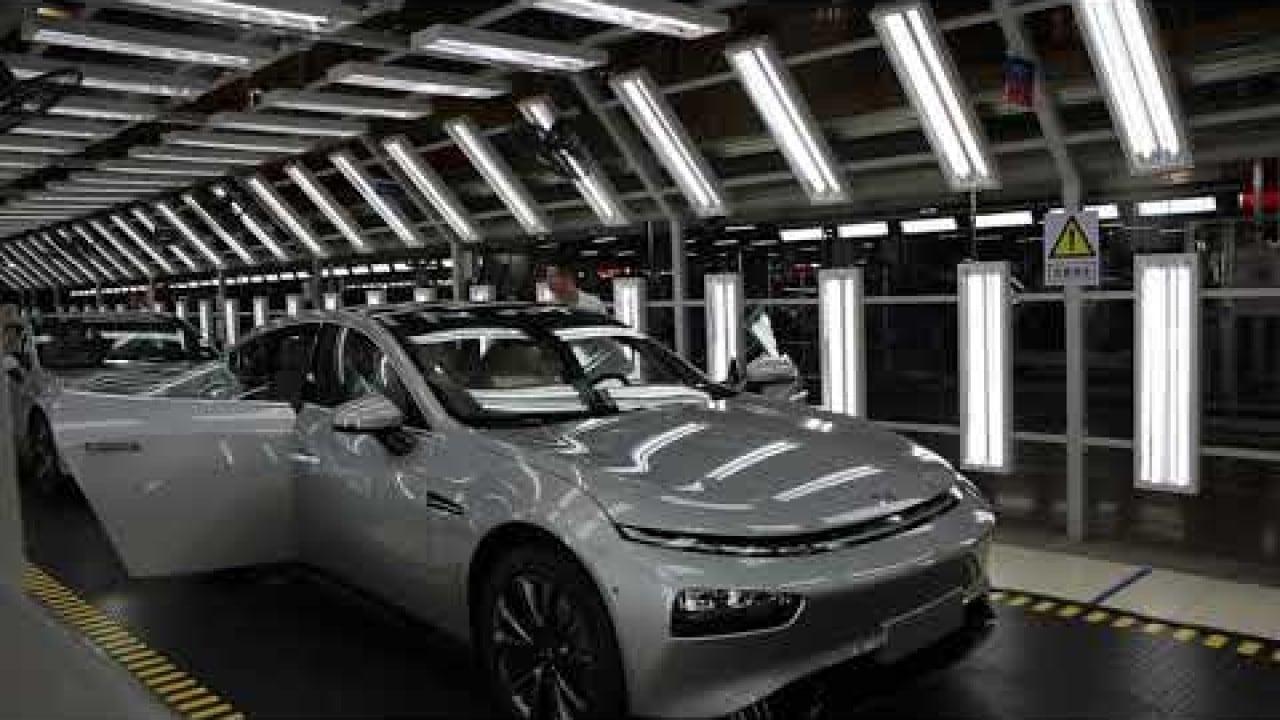
Apple supplier Foxconn and China’s Geely start EV venture to make cars for others, as sector chases its iPhone moment
- Joint venture will produce original equipment such as whole vehicles, parts, intelligent drive systems, etc for global carmakers
- Move comes as carmakers chase iPhone-like product that will change the whole segment, analyst says
The world’s largest contract manufacturer of consumer electronics is teaming up with China’s leading carmaker to assemble made-to-order electric cars, using their production prowess and supply chain expertise to help more marques enter the highly competitive market for new-energy vehicles.
“The current global automotive industry is undergoing profound changes. We must actively embrace change, build alliances and synergize global resources to create greater value for our end users,” said Daniel Li Donghui, Geely’s chief executive.
The venture will lower entry barriers to the EV market by allowing a would-be EV designer to outsource its production to Geely and Foxconn, in much the same way that smartphones, tablets and personal computers of global brands such as Apple, Samsung and Dell are made to order by Foxconn.
“Carmakers are competing to develop that one product that changes the landscape, like how the iPhone changed the mobile phone segment,” said Danny Chen, an associate at Hong Kong-based credit rating agency Pengyuan International focusing on the automotive industry.

“It is still at an early stage, as car users are still in a transition period, from traditional cars to EVs. Everyone is rushing to join the electric car game, as we all know that cars are the next big thing that will go smart, with capital and technology giants flocking in,” he added.
Moreover, the EVs the joint venture makes could be used by ride-hailing platforms, which require a large number of next-generation cars as people will favour EVs in the future, Chan said.
Contract manufacturing is not uncommon, even for electric cars. Chinese EV maker Xpeng Motors made the first 10,000 units of its G3 sport utility vehicle with a contract assembler in Zhengzhou, and put the finishing touches at its own factory in the Guangdong province city of Zhaoqing.

01:56
Inside Chinese electric vehicle maker Xpeng's factory in Zhaoqing city
“Geely’s tie-ups with technology giant Baidu and electronics production powerhouse Foxconn reflect its ambitions of staying ahead of the competition, as great changes are taking place in the global automotive industry,” said Gao Shen, a Shanghai-based independent manufacturing industries analyst.
Technologies such as Internet of Things, 5G, cloud services and artificial intelligence have come to assume great importance as carmakers race to develop next-generation cars and ideas, including autonomous driving. EVs that use such technologies to enhance navigation, improve in-car entertainment and link up with other cars or mobile devices are expected to be hugely popular among younger drivers.

01:16
Tesla exports first China-made cars to Europe with shipment of 7,000 Model 3 electric sedans
This means even conventional carmakers that are pursuing next-generation EVs have to enhance their technologies to survive the coming competition.
“Car builders are not supposed to focus on just car assembly with existing production facilities. It is advisable [for them] to develop and own smart technologies in manufacturing,” said Paul Gong, a UBS analyst. “Production capacity is not an issue [for conventional carmakers] at all – the crux is to have value-added technologies that are baked into car building.”
And although Hon Hai would not be involved in any assembly itself, the venture highlights its efforts to diversify its business. The company currently depends on Apple for half of its revenue.
Last October, Hon Hai unveiled its first EV chassis as well as an open software platform aimed at helping EV makers deliver models to the market more quickly. It will start shipping its first developer kit in April.
The Foxconn group already supplies parts to other major carmakers, including Tesla.


